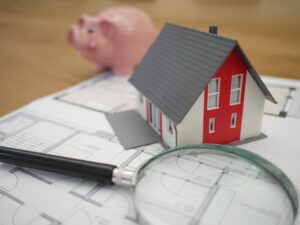
Can a Home Inspector Make Repairs? Understanding Roles and Responsibilities
Home inspections are a pivotal step in the home buying process, entailing a meticulous assessment of a property’s condition and identifying potential issues or repairs. However, a common question arises: can a home inspector undertake repairs on a property they’ve inspected? In this article, we delve into the roles and responsibilities of a home inspector, addressing this question and highlighting the significance of maintaining a clear separation between inspections and repairs. We’ll explore how this distinction upholds the inspection’s integrity, benefiting both buyers and sellers. Additionally, we’ll emphasize the importance of relying on qualified professionals for repairs to ensure accurate property evaluation and overall transparency during the home buying experience.
Understanding the Role of a Home Inspector
A home inspector plays a crucial role in the home buying process by providing an unbiased and thorough evaluation of a property’s condition. Their assessment covers various components, including structural elements, electrical systems, plumbing, roofing, HVAC systems, and more. The inspector’s examination is a detailed review of both interior and exterior aspects, aiming to identify any visible or potential issues that could impact the property’s value, safety, or habitability. By assessing these critical aspects, a home inspector acts as a valuable guide for buyers, offering vital insights for informed decision-making throughout the home buying journey. This assessment forms the basis for negotiations, ensuring a fair transaction and peace of mind for all parties involved.
Inspection Process
During the inspection, the home inspector carefully examines various aspects of the property, identifying visible issues or potential concerns. This is a visual inspection, meaning the inspector assesses what is readily accessible and visible without causing any damage to the property. Though non-invasive, the inspection remains thorough and comprehensive, utilizing specialized tools and techniques to gather detailed information about the property’s condition. These tools may include thermal cameras and moisture meters, aiding in detecting issues beyond the naked eye. This meticulous yet non-destructive approach ensures a detailed evaluation while preserving the structural integrity and aesthetics of the property, making the inspection process efficient and effective for both buyers and sellers.
Reporting and Documentation
Subsequently, the inspector compiles a comprehensive report detailing their findings. This report serves as a crucial tool for the prospective buyer, offering insights into the property’s condition and any necessary repairs or improvements. The report typically includes a detailed breakdown of the inspection, highlighting both minor and major issues identified during the assessment. Moreover, it provides clarity on any potential safety hazards or code violations requiring immediate attention.
The comprehensive report ensures that buyers have a clear understanding of the property’s strengths and weaknesses, enabling them to make informed decisions and plan for any future maintenance or improvements. Additionally, it acts as a valuable reference during negotiations, assisting buyers in requesting necessary repairs or negotiating the purchase price based on the inspection’s findings.
The Limitations of a Home Inspector
Before discussing these limitations, it’s important to note that home inspectors operate under specific restrictions that preserve the integrity and objectivity of the inspection process:
Non-Invasive Inspection
Home inspections are non-invasive, preventing any actions that could damage the property or involve destructive testing. While inspectors cannot open walls or ceilings to inspect hidden components, they utilize specialized tools for a comprehensive evaluation. These tools aid in identifying issues beyond visible surfaces, ensuring a thorough assessment without compromising the property’s structure or aesthetics.
Lack of Specialized Expertise
Home inspectors are generalists, possessing a broad understanding of various home systems. However, they may lack specialized expertise in specific areas, like electrical or plumbing repairs. In such cases, seeking assistance from licensed professionals in those respective fields for a specialized evaluation or repairs is advisable. This collaborative approach ensures an accurate assessment and appropriate resolutions, providing a comprehensive understanding of the property’s condition during the home buying process.
Addressing the Question: Can a Home Inspector Make Repairs?
In general, a home inspector’s role does not include making repairs on a property they’ve inspected. This principle is crucial to maintain the integrity and impartiality of the inspection process.
Conflict of Interest
Allowing a home inspector to conduct repairs could create a conflict of interest. Financial gain from repairs they recommend might compromise the inspector’s evaluation during the inspection. This conflict could affect the objectivity and credibility of the inspection process, potentially leading to biases in issue identification or exaggeration to secure repair work. Upholding the separation between inspections and repairs is essential to maintain the trust and integrity of the inspection process.
Objective Evaluation
Home inspectors are expected to provide an objective assessment of the property’s condition. If they were also responsible for repairs, this could cloud their judgment and affect the accuracy of their inspection. The dual role could inadvertently lead to subconscious biases towards finding or exaggerating issues to secure repair work, compromising the inspection’s objectivity. Keeping the roles distinct ensures an unbiased and reliable inspection, crucial for a transparent and credible evaluation of the property.
Professional Standards
Professional organizations, such as the American Society of Home Inspectors (ASHI) and the International Association of Certified Home Inspectors (InterNACHI), strictly prohibit home inspectors from offering repair services on properties they’ve inspected. These organizations emphasize an unbiased and impartial inspection process, maintaining the highest standards of professionalism and integrity within the industry. This prohibition ensures clients’ trust in the objectivity and accuracy of the inspection, assuring both buyers and sellers that the evaluation benefits them and is not influenced by any potential financial gain from repairs.
The Recommended Course of Action
If a home inspection reveals issues requiring repairs, engaging specialized professionals for those repairs is advisable. Seeking licensed contractors or technicians with expertise in the specific area of concern ensures accurate and standard-compliant repairs, maintaining an objective evaluation of the property.
Transparency and trust are fundamental in the real estate realm, with a home inspection serving as a critical tool to ensure transparency in the home buying process. However, it’s crucial to recognize and respect the boundaries of a home inspector’s role. While they offer vital insights into a property’s condition, repairs should be left to qualified professionals to preserve an unbiased and objective evaluation. This distinction allows buyers to make informed decisions, sellers to ensure transaction integrity, and the real estate industry to uphold the highest standards of professionalism.
Published on October 19, 2023 by Justin Killebrew


